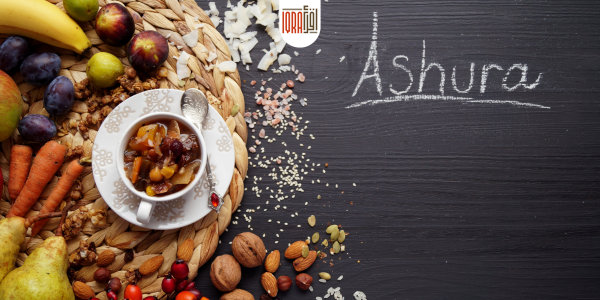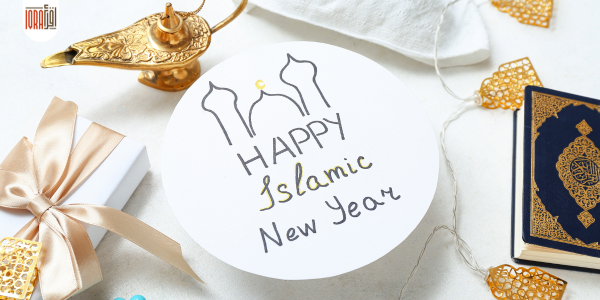Khadija bint Khuwaylid stands as a monumental figure in Islamic history, renowned not only for her role as the first wife of the Prophet Muhammad but also as the first person to embrace Islam. Her life story is a source of inspiration and a testament to her profound influence on the early days of the Islamic faith.
Early Life and Marriage to Prophet Muhammad
Khadija bint Khuwaylid was born into a family of prominence and wealth in Mecca. Her father, Khuwaylid ibn Asad, was a successful merchant, a status that Khadija inherited, becoming a notable businesswoman in her own right. Known for her noble character and business acumen, she managed caravans that traded goods across the vast deserts of Arabia. Her independence and success in a male-dominated society were unprecedented for the time.
Despite her wealth and status, Khadija’s personal life was marked by challenges. She was twice widowed and single-handedly managed her business, displaying resilience and keen intelligence. Her reputation for fairness and integrity was well-known in Mecca, earning her the nickname “Al-Tahira,” meaning the Pure One.
Her encounter with Prophet Muhammad came through her business. Seeking someone trustworthy to manage her trade caravans, she employed Prophet Muhammad, who was known for his honesty and reliability, attributes that were rare in the commerce circles of Mecca. Impressed by his efficiency and character, Khadija gradually grew to admire Prophet Muhammad deeply.
Tradition holds that after observing Prophet Muhammad’s conduct on a trade mission, where he proved not only his integrity but also his aptitude for trade, Khadija was moved to consider him as a husband. Despite the norms of the society and being fifteen years his senior, Khadija proposed to Prophet Muhammad through a relative. This proposal itself was a testament to her bold and unconventional nature.
Respect and love
Their marriage was based on mutual respect and love. Prophet Muhammad, who had little wealth of his own, found a comforting and encouraging partner in Khadija. She supported him emotionally and financially, and their marriage remained strong until her death. Khadija was the only wife Prophet Muhammad took until her death, a fact that underscores the depth of their bond.
Khadija and Prophet Muhammad’s partnership was not only significant on a personal level but also foundational for the Islamic faith. Khadija’s unwavering support provided Prophet Muhammad with the stability and encouragement necessary to face the immense challenges of his prophetic mission. Islamic teachings often highlight their marriage as an example of loyalty, love, and partnership.
Thus, Khadija’s early life and marriage to Prophet Muhammad set the stage for her critical role in the early days of Islam, where she would become not only a supportive wife but also the first believer and a key figure in the survival and spread of the new faith.
Khadija’s Role in Islam
Khadija bint Khuwaylid’s role in the foundation and spread of Islam is both profound and pivotal. As the first believer, her acceptance of Islam came at a critical moment, when Prophet Muhammad needed support the most. Her faith in his visions marked the beginning of Islam’s journey into the hearts and minds of countless individuals over the centuries.
Unwavering Support and Belief
From the moment Prophet Muhammad received the first revelations from the Angel Gabriel, Khadija was his pillar of support. Understanding the magnitude of his experiences, she did not hesitate to believe him, embracing the teachings of Islam wholeheartedly. This immediate and unquestioning support provided Muhammad with the strength and confidence needed to begin preaching the new faith. Khadija’s role transcended the domestic sphere as she became his confidante and spiritual companion, discussing revelations and strategies for spreading their new faith.
Financial and Emotional Anchor
Khadija’s wealth played a crucial role in the early spread of Islam. Her financial resources allowed Prophet Muhammad the freedom to focus on his prophetic duties without the burden of economic constraints. This support was not just financial but also emotional. In a time of great uncertainty and opposition, her home became a sanctuary for the early Muslims, a safe haven where they could gather, pray, and strengthen their faith.
Mentorship and Influence
Khadija also influenced other early converts to Islam through her wisdom and patience. She mentored new believers, offering guidance and support as they navigated the challenges of embracing a new faith. Her home was not just a physical space but a center of learning and faith formation in the early Muslim community.
Legacy as a Role Model
Khadija’s profound impact lies in her dual role as both a supportive wife and an independent figure of authority and respect. She is revered not only for being the first believer but as a model of virtue and steadfastness in the face of adversity. Her story teaches the values of resilience, faith, and proactive support in the pursuit of a greater cause.
The Significance of Her Support
Why is Khadija so famous? It’s not just because she was Prophet Muhammad’s wife, but because her support laid the foundational stone for Islam’s growth. She provided moral, emotional, and financial support to Prophet Muhammad and the early Muslim community. Her belief in Prophet Muhammad’s vision was unshakeable, even when others doubted him. She was truly his confidante and the first believer in what would become a world-changing faith.
Learning More About Khadija
For those intrigued by Khadija’s story and eager to learn more about influential figures in Islamic history, exploring courses can be enriching. You can explore our history curriculum here for detailed courses on Islamic history, including the life and contributions of Khadija bint Khuwaylid.
Why Khadija’s Story Matters Today
The story of Khadija is not just historical; it’s inspirational. It shows us the impact one individual can have on the faith and lives of many. Her story is particularly empowering in discussions about the role of women in Islam, highlighting her as a leader, a supporter, and a believer equal to any of her male counterparts.
For parents looking to impart values of courage, faith, and equality to their children, Khadija’s life serves as a perfect teaching tool. Discussing her life can help instill a sense of pride and respect for historical figures who shaped our world.
Are you inspired by Khadija’s story? Do you want to dive deeper into the lives of such influential figures and understand their contexts and contributions? Register today to join our engaging community of learners and explorers. Sign up to our program and start your journey into the rich tapestry of Islamic history.
Conclusion
Khadija bint Khuwaylid was more than just a supportive wife; she was a pioneer of faith, a successful entrepreneur, and a role model for both men and women. Her life and commitment to Islam serve as a beacon of strength and faithfulness. By studying her life, we not only pay homage to her but also gain a deeper understanding of the early days of Islam and the powerful impact of strong, supportive relationships.
For further reading on Khadija and her monumental role in Islam, I recommend visiting reputable sources like Wikipedia, Al-Furqan. Here, you can find detailed accounts and scholarly discussions about her life and contributions to Islam.
Khadija’s story is not just a chapter in Islamic history—it’s a source of daily inspiration for millions around the world. By revisiting her story, we find timeless lessons of resilience, faith, and unconditional support.





0 Comments
Oops comments are disabled